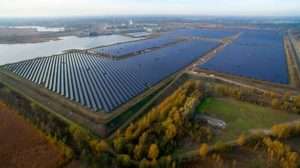
In total, 15 of the 27 EU members reported shares below the 21.8 per cent average in 2021: Belgium, Bulgaria, Czechia, Germany, Ireland, Spain, France, Italy, Cyprus, Luxembourg, Hungary, Malta, Netherlands, Poland and Slovakia.
The lowest proportions of renewables were recorded in Luxembourg (11.7 per cent), Malta (12.2 per cent), the Netherlands (12.3 per cent), Ireland (12.5 per cent) and Belgium (13 per cent).
The UK appears towards the bottom of the European rankings, with only 14 per cent of its energy coming from renewables in 2021.
As the analysts note, there is still a long way to go before the EU reaches its renewables target. This is currently set at 40 per cent by 2030, but – under the new REPowerEU plan – there is ongoing discussion about upping it to 45 per cent.
That higher target would mean 69 per cent of electricity would come from renewables, according to energy think tank Ember. EU countries are collectively targeting 63 per cent renewable electricity by 2030, but challenges around construction permits for example, risk holding the bloc’s ambition back.
The IEA also points to improving state auctions for clean energy projects, and rooftop solar incentives as means of speeding up the renewable revolution.
Source: Euronews.com
